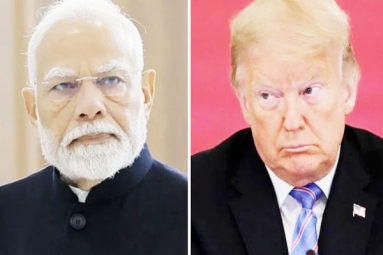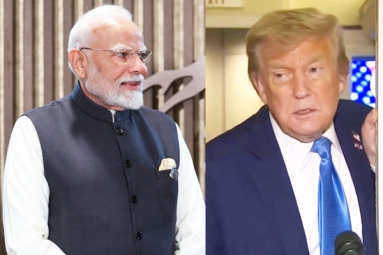
(Image source from: x.com/WhiteHouse)
The President of the United States, Donald Trump, has shifted his focus back to Canada once again. He declared via Truth Social that he is immediately "terminating all discussions on trade" with Canada. This outburst is prompted by the recently implemented Digital Services Tax. Although the tax was established last year, businesses are set to commence payments starting June 30. Trump is particularly irked because this tax will affect major technology firms and large e-commerce platforms that are based in the US. The Digital Services Tax requires both international and domestic large enterprises to pay a fee based on the revenue generated from their interactions with Canadian users. It imposes a three percent tax on the income earned through various digital services that depend on user engagement, data collection, and content contributions. As a result, this taxable income could come from online marketplaces, digital advertising services, social media platforms, and the sale of user data.
The provisions of the Digital Services Tax target companies or entities with worldwide revenues exceeding €750 million and Canadian digital services revenue surpassing CAD 20 million. Notably, the tax is retroactively applied from January 1, 2022, and the payment period for companies will begin on June 30, 2025. The fundamental argument behind the Digital Services Tax is that if significant revenues are generated from Canadian users by large foreign companies, Canada should have the right to tax part of that revenue. It is projected that Canada will garner approximately $875 million annually from this tax, according to a statement from the US Trade Representative issued last year. Over a span of five years, the Canadian Parliamentary Budget Office estimates that the Digital Services Tax will enhance federal revenues by CAD 7.2 billion. The Computer and Communications Industry Association (CCIA) in the US asserts that businesses could face tax payments amounting to as much as $3 billion to Canada, while also foreseeing a loss of around 3,000 jobs in the US.
The US Trade Representative (USTR) had conducted previous investigations into Digital Services Taxes in other nations and reported findings that they were biased against US companies. As a response, the United States had proposed retaliatory tariffs against nations imposing a Digital Services Tax and indicated it would adopt a similar approach towards Canada. In August 2024, USTR Katherine Tai announced that the United States sought dispute resolution consultations with Canada concerning the Digital Services Tax, in line with the United States-Mexico-Canada Agreement (USMCA or CUSMA). The USTR contended that Canada's tax appeared to violate its commitments under the chapters pertaining to cross-border trade in services and investment within the USMCA, by not treating US businesses as favorably as Canadian ones. Furthermore, the US claimed to have expressed its concerns to Canada through three official communications regarding its plan to implement the Digital Services Tax in June 2021, February 2022, and September 2023.
The US Chambers of Commerce has characterized the Digital Services Tax as "discriminatory" and claimed that it violates established international tax norms. They contend that this measure would not only disadvantage American firms but also breach Canada’s commitments under both the US-Mexico-Canada Agreement (USMCA) and the World Trade Organization. Consequently, it is not surprising that President Trump's response to the impending payment deadline for the Digital Services Tax is one of discontent. Earlier this month, Canadian Finance Minister Francois-Philippe Champagne announced that Parliament had approved the Digital Services Tax and that the government would proceed with its implementation. Canada’s decision to introduce its own Digital Services Tax stemmed from significant delays in the global initiative to create a comprehensive, multinational taxation framework for digital services.
Critics claim that the Digital Services Tax represents a unilateral action that could destabilize the established multilateral agreement. Nonetheless, with the Trump administration's imposition of unilateral tariffs on a range of goods, including aluminum, steel, automobiles, and energy imports from Canada, this perspective is not likely to persuade Canadian officials. Amid feelings of betrayal from its primary trading partner, the United States, and the adverse effects of the aggressive Trump tariffs, Canada is starting to leverage its economic power more assertively. The Digital Services Tax may serve as a strategic bargaining chip in this context.



















